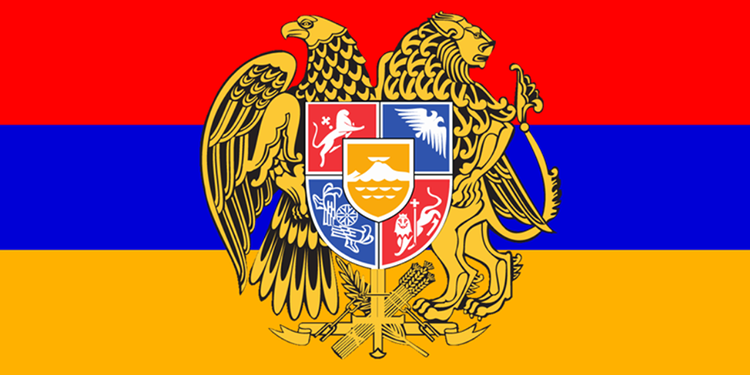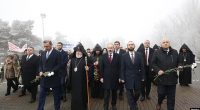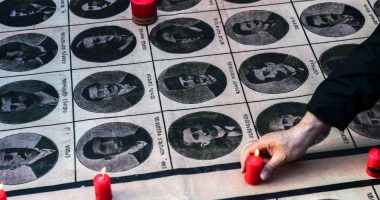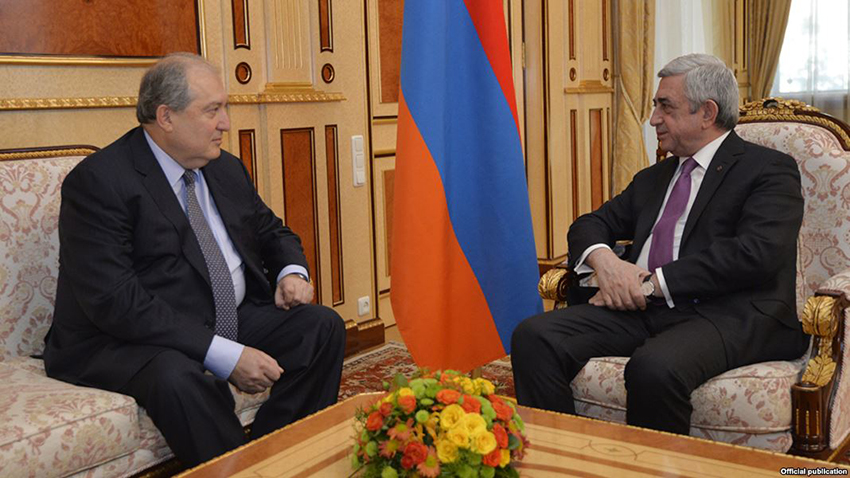Let’s begin our end of the year reflections with a question. While taking a stroll, if you find a stranger’s wallet containing a large amount of money, will you return it to the owner or pocket it? You can pause and ponder about it or continue reading to find out our answer.
In a community, the more the number of returners of a stranger’s lost wallet, the more united, strong, and progressive that community is, because every one of its members is conscious and zealous for the common good as well. And the more the number who pocket it, the more fragmented, vulnerable, and primitive that community is, because every person thinks only of his own interest, even at the expense of usurping and harming his fellow countryman. What would be the reaction of those who have a “finders keeper” mentality, had they lost their wallet?
Let’s ask another question: What type of a community are we? It is important that this issue is discussed publicly, in order to reveal the positive and negative features of our nation. By doing so, we will be able to enhance the positive and reduce the negative.
One more question: What drives us to write these reflections? A careful reader, looking at the headline above, would have grasped our concern. A new world is being formed and if we, as a nation, do not orient ourselves correctly, the consequences can be catastrophic. So with this article, we will strive to explain our understanding of world developments and in the light of it, make suggestions that may be helpful for us to orient ourselves in the right direction.
Important World History Events and Us
When we look back at world history, we can single out a few events that have had a major impact on the development of new world orders. These include the spread of Christianity in the 4th century, the spread of Islam in the 7th century, the invention of printing in the 15th century and the Renaissance movement associated with it, and finally the invention of the Internet and its development over the last fifty years.
In order to not overload our article, let us mention briefly how we Armenians came to grips with these events.
We became the first state to adopt Christianity as the official state religion. Why? Because in it we saw the force that could help us withstand the danger of being assimilated by the Sasanian Empire/Zoroastrianism. But when the globalization of the Christian religion threatened the preservation of our identity, we “nationalized” it with the creation of the Armenian alphabet and the resulting Golden Age. The architects of these developments were Gregory the Illuminator and King Trdat III, Mesrop Mashtots, Catholicos Sahak and King Vramshapuh, and the Mamikonian dynasty, a pillar of the Arshakuni royal family.
When the Arabs became a world power in the 7th century and by capturing Armenia threatened our identity, it was the Bagratid dynasty that found a “modus vivendi” with them, as the Mamikonians, backers of Christianity in Armenia faded away. With the subsidence of the Arab threat towards the end of the 9th century, Christian Byzantium increased its pressure upon us. However, with the advent of the Seljuks in the second half of 11th century, there was a major demographic relocation towards Asia Minor and especially to Cilicia, where the Rubenid dynasty established the Cilician kingdom (1198-1375). The Armenians once again tied their destiny with Christian Europe through the Crusaders.
The invention of the printing press (1439) became the impetus for the proliferation of the Renaissance movement (1300-1600), and the resulting reformations and revolutions in religious, political, scientific, cultural and other sectors, once again transforming the world order. Notable examples are the discovery of America (1492), the Protestant Reformation of Martin Luther (1517), the advance of modern science, spurred by Galileo (1632) and later, the French Revolution (1789). Almost simultaneously, the fall of Constantinople in 1453 and the assaults of the Ottoman Empire on Europe in the 16th-17th centuries had profound consequences on many nationalities, including certainly the Armenians. The idea of nationalism fostered by the French Revolution contributed to the creation of nation-states, as evidenced by the unification of Germany as well as Italy (1871). It was during this period that the Mekhitarist movement, led by Mkhitar of Sebastia (1676-1749), revived nationalist sentiments among Armenians, following the example of Mesrop Mashtots, in harvesting the best ideas of the era and introducing it to the Armenian communities around the world. Had it not been for the Mekhitarist movement, the future of the Armenians would have been endangered.
The advances of the Internet over the past five decades is having a similar and greater ripple effect than the printing press had and at a much faster rate. The demolition of the Berlin Wall (1989) and the reunification of Germany (1990), as well as the collapse of the Soviet Union (1991), can be considered a starting point in the process of creating a new world order. One of the results of this process was the newly independent Republic of Armenia. But in order for it to last, it must arm itself with the “weapons” that will help it to preserve its identity, and not get devoured by the process of globalization. In our opinion, there is a need for a modern-day Awakening that can be achieved through the spread of healthy nationalistic ideas among all classes of the people. It is interesting to note the influence that the idea of nationalism is having not only on small states like us, but even on major powers. To fully grasp the important role that nationalism is playing in the life of nations, it is enough to look at the examples of Donald Trump (USA), Xi Jinping (China) and Vladimir Putin (Russia), just to have mentioned the major ones. If the concern of the little nations is self-defensive, the major powers are using it to expand their influence and domination over other nations, be that in the spheres of the military, telecommunication, economy, etc. To accomplish their goals, they are creating “controlled” crisises around the world. But if the “controlled” somehow suddenly gets out of control, it is likely to cause the outbreak of World War III. We all know what terrible losses we, Armenians suffered during World War I and World War II. Therefore, we need to be seriously concerned about the potential consequences of a World War III and prepare accordingly.
In light of the above, it becomes clear that we must endeavor to become a nation where the majority will understand the benefits of being “returners of a stranger’s lost wallet.” That consciousness will urge us to uphold our national interests over sectarian ones, which in turn, will help us maintain our peculiar place among the nations of the world. If that national consciousness had prevailed among us in the pre-Genocide era, our destiny would have been different. It is true that delving into “ifs” will not alter our current reality, however, it can help us learn from it to avoid committing similar mistakes in the future. Therefore, it is worthwhile here to briefly review our recent history.
Lessons From Our Recent History
The spread of the idea of nationalism in Europe in the 19th century contributed to the dismemberment of the “sick man” of the continent, the Ottoman Empire. Let’s only mention the examples of Greece and Bulgaria, which gained independence in 1832 and 1878 respectively. Encouraged by these examples, other nationalities of the empire began pursuing similar goals, including the Armenians. That fact instinctively led the ruling elite of the empire to counter react, to maintain the status quo and the privileges they enjoyed. It is no coincidence that in the last quarter of the 19th century we see the creation of the Social Democratic Hunchakian Party, the Armenian Revolutionary Federation, the Committee of Union and Progress, as well as the Zionist organization. The Armenians and the Jews wanted to have their own states, while the Turks wanted to keep their empire. Despite the fact that we constituted 20% of the population of Asia Minor, which was considered the heart of the empire, that proportion did not correspond with our strength. That’s because we were spread around, deprived of the right to bear arms, our elite were pursuing their own privileges with the Turkish elite, the majority of our people consisted of villagers who, being oppressed for centuries, were only anxious about securing their daily livelihood, and other less important reasons. So being unable to fulfill our goals on our own, we expected to achieve it with the help of Christian Europe. We began to organize demonstrations and acts of terrorism to incite our people on the one hand to seek to change their situation and on the other hand to attract Europe’s help. The uprisings of Sasun in 1894 and Zeytun in 1895-96 and consequent developments showed that our goals were not realistically achievable because a united uprising of the Armenians could not be realized. That feasibility had to be reconsidered. The heated discussions that followed, resulted into splits in the SDHP and the ARF. While the SDHP generally refrained from conducting terrorist activity, the ARF was more aggressively committed to it until the Young Turks revolution of 1908. This revolution derailed our elite, who being more preoccupied with their immediate gains and the allure of gaining a few seats in the newly formed Ottoman Parliament, ignored the lessons learned from the developments of the past 20 years, the dangers that threatened us, as well as the warnings that were being voiced by experienced people such as general Andranik. Soon, World War I erupted and the Turks solved the issue of the founding of their nation-state by committing the Genocide of the Armenians and eradicating us from our ancestral lands.
In the event of a new world war, wouldn’t the Turks want to complete their half-done task and pursue their Pan-Turkish program to completion? Two weeks ago we got a hint to what the answer to this question could be, when news reports revealed that in 2001 the Turks had developed a program to attack Armenia. This news should be enough to awaken in us all, the “One for All, All for One” national collective consciousness and get prepared to overcome such a possibility at any cost.
Our National Priority
Perceiving the importance of the “One for All, All for One” concept should become our top priority and it should be reflected in our daily way of life and practice. We must do this first of all by introducing relevant programs into our educational systems. We should practice it in our cultural, social, political, economic and other spheres of life. It is only by understanding this concept that we will be able to counteract the negative phenomena of the process of globalization and take advantage of its benefits. For example, we should use social networks to advocate for national values and not to spread morals that are incoherent with our national psyche. We should propagate the benefits of mutual understanding and cooperation against the evils of hypocritical, divisive, and discordant activity. We should espouse the necessity and essentiality of pursuing the “whole,” that is, the supreme interests of the nation, against all kinds of temptations of the “part,” that is, the benefits of one sector. We should ingrain in the mind of every Armenian, the lasting power of the “whole” against the transient nature of the “part.” We should use our everyday smartphone not only for fun and entertainment, but also for learning and educational purposes. We should not let those tools dull our minds and turn us into zombies, but use them to develop our minds and to grow our critical thinking.
Our history has shown us that with our national sound instinct we have succeeded in “armenianizing” the alien Parthians, Mamikonians, and Bagratids who have greatly contributed to the eternality of our national march through history. What hinders the citizen of Armenia and the Diaspora Armenian, the Eastern-Armenian and the Western-Armenian, from contributing to this national march through unselfish involvement and joined cooperation?











